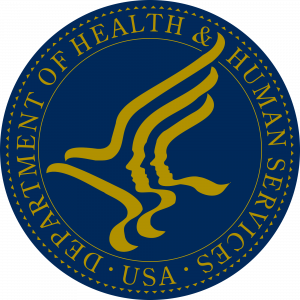U.S. Department of Health and Human Services (HHS) Recommends that Cannabis Be Rescheduled to Schedule III Under Federal Law
by Omar Figueroa and Lauren Mendelsohn
August 30, 2023
The U.S. Department of Health and Human Services (HHS) is suggesting that cannabis should be reclassified from Schedule I to Schedule III under federal law. This significant shift reflects the view that cannabis no longer has a high potential for abuse and lacks medical value. Following a scientific review prompted by President Joe Biden in the previous year, HHS is advising the Drug Enforcement Administration (DEA) to move cannabis to Schedule III of the Controlled Substances Act. While the recommendation isn’t obligatory, the DEA, influenced by both scientific analysis and increasing political backing for cannabis reform, might decide to implement the change.
According to the DEA, Schedule III substances have currently accepted medical use in the United States and less potential for abuse than substances in Schedules I and II:
Substances in this schedule have a potential for abuse less than substances in Schedules I or II and abuse may lead to moderate or low physical dependence or high psychological dependence.
Examples of Schedule III narcotics include: products containing not more than 90 milligrams of codeine per dosage unit (Tylenol with Codeine®), and buprenorphine (Suboxone®).
Reclassifying cannabis to Schedule III would maintain federal prohibition but have significant implications. This move would particularly benefit researchers who face obstacles due to the Schedule I classification.
For the cannabis industry, the reclassification would enable federal tax deductions, currently denied to Schedule I and II drug businesses under Section 280E, resulting in lower effective tax rates. Politically, such a move could be presented as a major reform accomplishment by President Biden, potentially energizing further congressional efforts to reform federal cannabis laws and providing momentum for cannabis banking legislation such as the SAFE Banking Act.
Although some had hoped for full descheduling, the Schedule III recommendation could still influence positive change. Concerns about increased FDA involvement in state markets were raised, but a former top FDA official believes that reclassification would not drastically change the FDA’s current approach. According to Marijuana Moment, the former FDA official, Howard Sklamberg, pointed out that the agency and the Justice Department have taken a hands-off approach to the legalization movement while cannabis is considered a Schedule I drug. It “defies logic” to think the agencies would suddenly enforce criminalization if it’s moved to a less restrictive category, he argued.
The DEA confirmed receipt of the rescheduling recommendation on August 30, 2023. “We can confirm DEA received a letter from the Department of Health and Human Services providing its findings and recommendation on marijuana scheduling, pursuant to President Biden’s request for a review,” a DEA spokesperson told Marijuana Moment. “As part of this process, HHS conducted a scientific and medical evaluation for consideration by DEA. DEA has the final authority to schedule or reschedule a drug under the Controlled Substances Act. DEA will now initiate its review.”
Aaron Smith, Co-Founder and CEO of the National Cannabis Industry Association, stated:
This is unquestionably a historic day in the decades-long fight to end marijuana prohibition. It’s never made sense for cannabis to be listed as a Schedule I substance given what science knows about its medical value and this recommendation acknowledges that.
However, rescheduling would not resolve the federal conflict with state cannabis programs. The entire industry as we know it will continue to be out of step with federal law, as long as marijuana remains in the Controlled Substances Act.
Schedule III drugs must be approved by the FDA after clinical trials and only dispensed through pharmacies to patients with prescriptions which are tightly monitored by the DEA. Main Street Cannabis businesses are not positioned to navigate the complex and costly requirements imposed on Schedule III drug manufacturers. Furthermore, rescheduling doesn’t address adult use at all.
One very significant benefit of moving to Schedule III, should the DEA follow this recommendation, would be the elimination of the 280E burden on legal cannabis businesses. That provision specifically applies to Schedule I & II substances only.
The nonbinding recommendation to reschedule now sits with the DEA which will conduct an administrative rulemaking review process before deciding whether to reschedule (or deschedule) marijuana in accordance with the Controlled Substances Act.
While acknowledging this recommendation is a step forward, NCIA is calling on Congress and the Administration to remove cannabis from the Controlled Substances Act and regulate it like alcohol. This is the only way to fully resolve the federal-state legal conflict and provide much needed relief to the legal cannabis industry.
In the likely event rescheduling comes first, we are also advocating for federal enforcement directives that would prevent DEA and FDA from enforcing federal laws and regulations in cases where businesses are complying with state cannabis laws. Such a directive could come in the form of a congressional budget rider or an administrative order, such as the Obama-era “Cole Memo.” We are working both tracks.
Even as we remain vigilant in our effort for federal descheduling, it should not be lost on us that today’s recommendation is a significant political win for the cannabis industry and reform movement. The news today was the result a review ordered by the President of the United States after acknowledging the failures of federal cannabis prohibition.
This is an evolving story. Please stay tuned for further updates.

